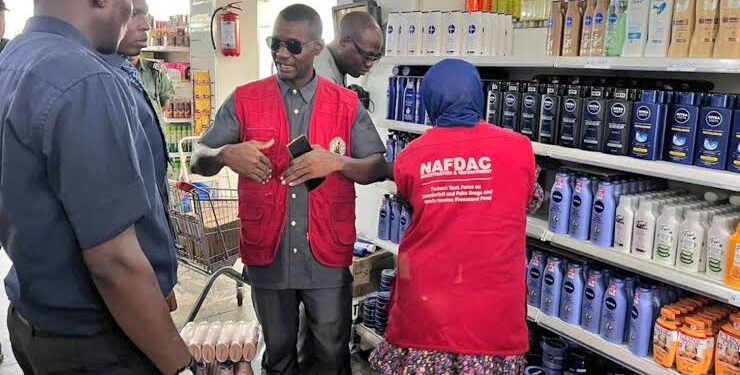The FCT Directorate of National Agency for Food and Drug Administration and Control (NAFDAC) has confiscated contraband alcoholic products in Wuse Market, Abuja.
The Director of the agency’s FCT directorate, Mr Kenneth Azikiwe, said after the operation on Thursday, that manufacturing and distribution of alcoholic beverages in satchet and PET bottles remain banned.
He added that several sachets of alcohol and in small bottles, including 30ml and 100ml packs, were discovered and confiscated.
Azikiwe, therefore, urged distributors and retailers to desist from the sale and distribution of the banned products, urging them to return any remaining stock to NAFDAC.
He said “we want to appeal to manufacturers to respect the ministerial ban and the agreement signed by the Distillers and Blenders Association of Nigeria in 2018 with NAFDAC.
“The Association of Food, Tobacco, Beverage Employers, and the Federal Competition Consumer Protection Council, were also part of the agreement.”
He explained that the agreement, which introduced phased withdrawal process, has reached final level of ensuring complete removal of the banned products from markets.
He recalled that “since 2018, we stopped registering and renewing licences for these products. Manufacturers were given ample time to exhaust existing stocks and halt production.
“At the moment, any violation will attract full weight of the law.
“Anyone found selling these products will face penalties for violating regulations and this will include being treated as someone dealing in unregistered items.”
He further noted that enlightenment campaigns and stakeholder engagements had been conducted over the years to ensure compliance with the ban.
He added that it is disheartening that some manufacturers and distributors claim ignorance of the ban, in spite of extensive public awareness.
The director, who expressed concern over reports of secret manufacturing of the banned satchet alcohol and pledged that NAFDAC’s investigation team would work to trace and curb such activities said “the onus is on them to comply fully with the directive.”
He reiterated the agency’s commitment to safeguard public health through strict regulatory measures.(NAN)











